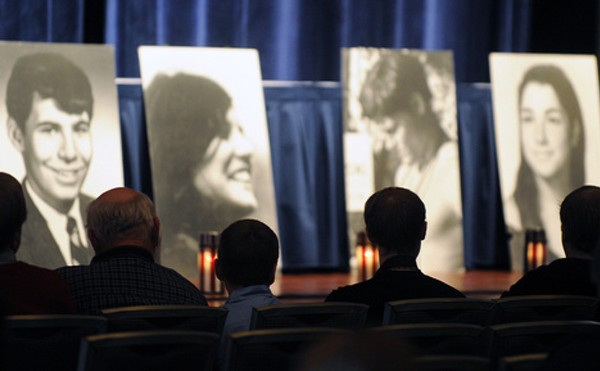When I studied geography in the fourth grade under the tutelage of Mrs. Diers at St. Mary’s School (Go Saints!), I had my first out-of-body experience. Each lesson in our geography textbook included a cute child “host” from a different country. The kids, who were always conveniently about 10 years old, took us on a tour of their country’s landscapes, culture and economy. It was sort of like a travel blog, only logically organized and well-edited.
One lesson, hosted by a delightful girl from Ecuador, blew my little Catholic schoolboy mind. I can still see the textbook’s photo in my mind’s eye, with its gorgeous rocky coast spilling into an impossibly blue sea. The girl’s story was beautifully told; she took us on a tour of her country and introduced us to her family. When the bell rang, it took me a couple of seconds to realize I was not in Ecuador.
That experience was my awakening that the written word could truly sweep me away to another place. It wasn’t just entertainment or education. I had quite completely forgotten where I was and what I was doing. I had just become a little less dumb.
Today, we have scientific evidence that travel changes our brains. Researchers have studied taxi drivers, tourists and other people on the move, and are finding that their brains actually generate cells when they experience another culture. Who we are is altered by where we are. (Which puts a new slant on my daughter’s T-shirt that says, “Nature or nurture — either way it’s your parents’ fault.”)
I’ve sensed this growth in my own travels, when I’ve come home from vacations feeling wiser about not just where I’ve been but about my own culture as well. Travel around the United States and you learn more about Louisville. Travel around the world and you learn more about the United States.
But what the Mrs. Dierses of the world know is that you don’t need to leave town to capture a bit of that magic. And as technology improves and “big data” makes everything shockingly knowable, it’s becoming easier to take a virtual vacation by diving into another culture or even another time. Combining books, magazines and TV with new tools like Google Maps, YouTube, Twitter, podcasts, museum sites, The Google Cultural Institute, BBC Radio and online libraries, you can take a trip without leaving the couch.
This summer I became a bit obsessed with ancient Maya culture. I read a few books and found the topic so compelling that I let it creep into my regular news-consumption time allotment. Gradually, as Louisville news fell back to 10 minutes of daily headlines, the Maya came to life. A National Geographic special called “Mysteries of the Maya” complemented the reading with spectacularly rich photography of Maya ruins.
At one point it felt like I’d been traveling in both time and space for weeks with only occasional check-ins in Louisville, even though I never physically left. (To be fair, the Maya lived and died by a ballgame, so it wasn’t really that much different from home.)
I still went about my job, social obligations and household duties, but whenever I had a spare moment, I dashed back to 1000 CE Mesoamerica, scampered through the jungles, climbed the limestone palaces and imagined the political doubletalk it would take to be excused from the upcoming penis-perforation bloodletting ritual.
Not your idea of a fun vacation? The opportunities are unlimited. You could read the Book of Genesis and take an interactive maps tour of Egypt or the ruins of Ur. You could read “Great Expectations,” watch one of the movie adaptations and take one of the virtual web tours of the kitschy Dickens theme park in London. You could creep on one of your dead ancestors on a genealogy site and tour his or her birthplace on Google Street View.
So, where are you going on your couch vacation? You could read “Lonesome Dove” by Larry McMurtry or “The Big Sky” by A.B. Guthrie, then take a cap pistol or toy bow-and-arrow out in the backyard and play a game of herdsmen of European descent vs. indigenous people. You could unfollow everybody on Twitter who lives in Louisville and follow random counterparts in Kaua’i.
One of the best things about our world today is how easy it is to leave it. Mrs. Diers, who died in 2006 at age 97, would expect no less.






